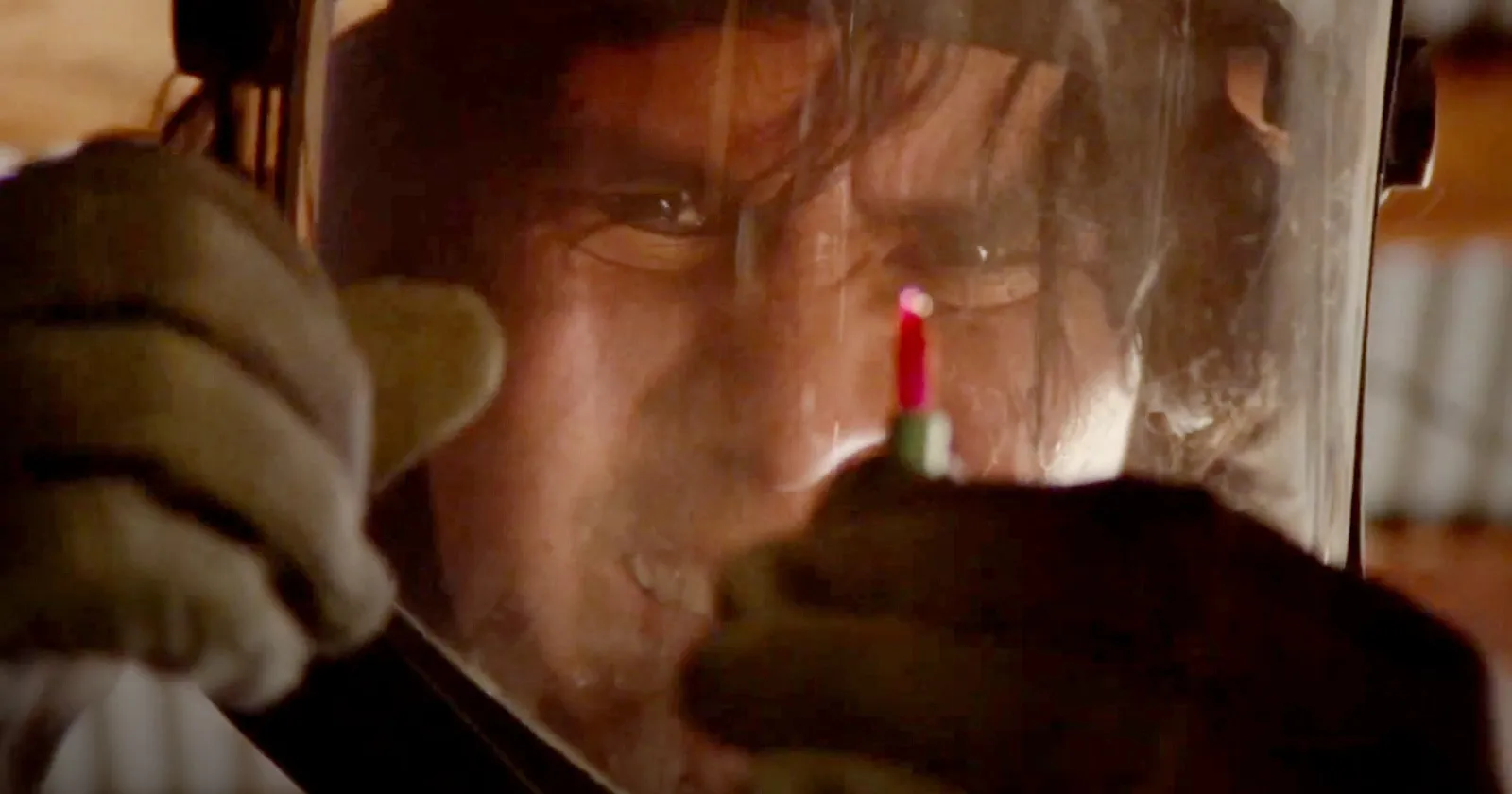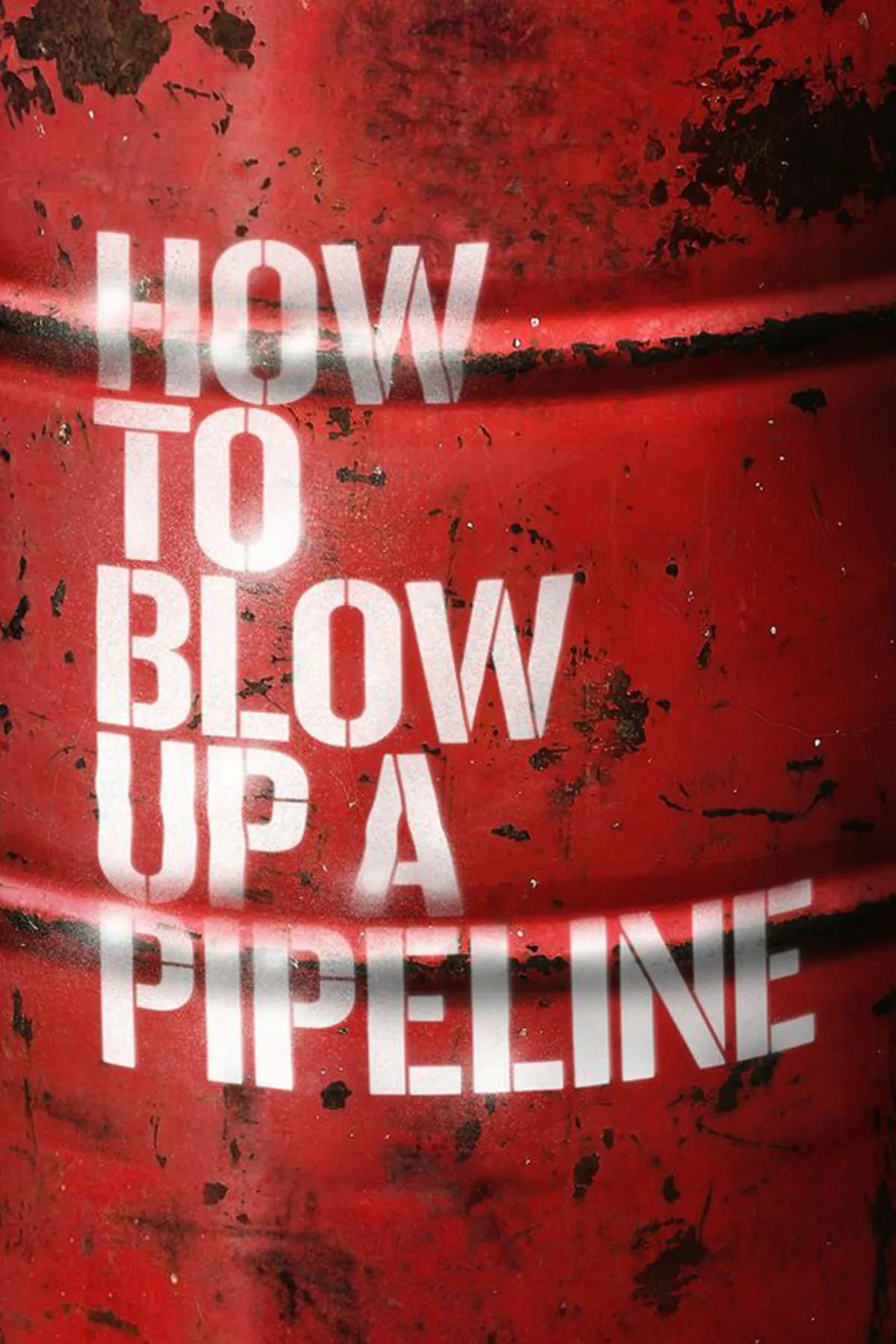How to Blow Up a Pipeline is a marvelous, pulsating indie darling making its way to streamers in May 2023. While perhaps not the spectacle or star-studded cast one would normally seek out, Daniel Goldhaber’s newest ecological thriller finds success in the the ways the disenfranchised look to take action.

‘How to Blow Up a Pipeline’ Movie Review
For years I’ve felt that the film industry could get better at representing the fears and motivations of people growing up in the late-90s to mid-00s (whether you call those millennials or early Gen Z-ers, they ultimately mold together into one). This may be a product of a lack of financial backing for filmmakers born in this era by major studios, but it has resulted in a lack of portrayals of this specific time that feel honest and relevant.
Films like Megan Park’s The Fallout and Cooper Raiff’s Shithouse have probably gotten the closest recently to achieving the insecurities and emotional turbulence of young adults, but those films are on a much smaller scale. How to Blow Up a Pipeline may be the first of these movies that truly feels like its expanding into a heart-pounding, thrilling spectacle.
How to Blow Up a Pipeline plays exactly as the title reads. Even as the name goes, it feels heavily inspired by the likes of Robert Bresson’s A Man Escaped and a handful of Steven Soderbergh movies using its obvious title as a way to build intrigue and tension. A Man Escaped feels the closest because it equally tells you exactly how the film ends, but by the time you reach the first few steps of our main character touching grass outside the prison (or in this case, blowing up a pipeline in smalltown Texas that has threatened the ecosystems and climate), you understand that the process to get where we are matters as much as the end result.
Daniel Goldhaber is a relatively new filmmaker developing projects that center on those being wrung out of the system. His film for Netflix, Cam, approached the ideas of webcamming and feeling vulnerable to the world from your own home, even if it is your own doing. How to Blow Up a Pipeline builds on characters feeling as if climate control has damaged their lives and completely taken over. Each of them have tried ways to cope with their issues, but it has led them all to more sever action – blowing up an oil pipeline to show the country that action can be for the right reason.
Maybe it’s just that films like Goldhaber’s hit me in just the right way. My favorite films are all ones about characters struggling to live on the margins of society. While I’ve seen plenty that fit this bill, few of them are as tense and cleverly structured as How to Blow Up a Pipeline. Although it is told in a straightforward story – only to be broken up by flashbacks explaining each character’s motivations – it never loses the frenetic pacing and pulsating beat that it keeps drumming to.
Also, it’s always great to see a cast of actors you’re unfamiliar with all shine and become performers you’re genuinely interested in seeing moving forward. Many movies struggle to balance individual characteristics by a main cast when it exceeds just a few characters, but How to Blow Up a Pipeline works with a handful. Ariela Barer and Sasha Lane were probably the two that I found most compelling when juggling their past lives with their responsibilities in the plot, but honestly no one feels like the odd one out. It was also nice to see Lukas Gage off a short The White Lotus run.
READ MORE MOVIE REVIEWS: Peter Pan & Wendy, Rye Lane, Ghosted
How to Blow Up a Pipeline probably won’t be the most recognized, highly touted film of 2023, but I’d be hard-pressed to find another movie so far as prescient and timely as this one. Movies like these don’t usually work – they’re a drag and you know where it’s heading the entire time. “How to Blow Up a Pipeline” shines in the fine details.
Where to watch How to Blow Up a Pipeline: Hulu, VOD
Film Cast and Credits

Cast:
Ariela Barer as Xochitl
Marcus Scribner as Shawn
Forrest Goodluck as Michael
Sasha Lane as Theo
Jake Weary as Dwayne
Lukas Gage as Logan
Kristine Froseth as Rowan
Jayme Lawson as Alisha
Irene Bedard as Joanna
Crew:
Director: Daniel Goldhaber
Writer: Daniel Goldhaber, Ariela Barer, Jordan Sjol, Andreas Malm (Original Writer)
Cinematography: Tehillah De Castro
Editor: Daniel Garber
Composer: Gavin Brivik